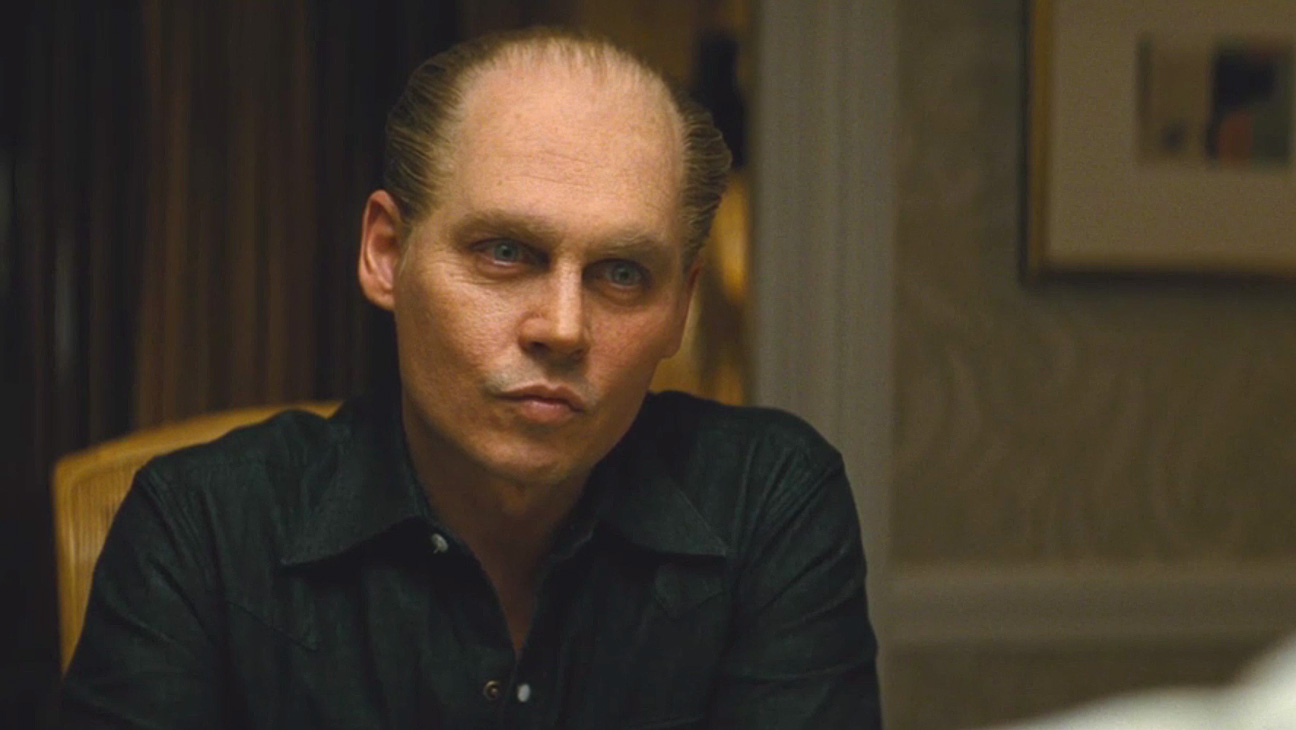Black Mass is a traditional gangster film with a stellar cast
Scott Cooper’s Black Mass may as well have been called Black Mamba because it gives you the same feeling you’d get from observing a predatory snake at the zoo. Johnny Depp has previously played an informant in Donnie Brasco and a famous gangster in Public Enemies, and now he plays James “Whitey” Bulger, a real-life figure who happened to be both a gangster and an informant.

Depp’s Bulger is truly snakelike, fearless and unpredictable. You can almost imagine him hissing as he sweet-talks his prey, his light blue eyes glowing hypnotically in the dark. It is remarkable how deep he is willing to immerse himself in his characters. Even in some of his worst films, he manages to involve the viewer, because he seems to operate on a different level than the filmmaker, as if in direct communication with the viewer. He never limits himself to the lines that are written for him, instead laying bare his character’s heart and soul, as dark as it may be.
Bulger’s portrayal in this film has caused controversy because of the pain Bulger has inflicted in his home city. The crime boss, who agreed to cooperate with the FBI to bring down a rival crime family (and as a result was allowed to rule with impunity over South Boston throughout the ‘80s) subsequently went into hiding and was only apprehended in 2011, after spending nearly two decades under an assumed identity.
The film starts in the late 1970s and, without exactly chronicling Bulger’s rise to power, shows scenes that help contextualize it. Early on, you meet John Connolly, the crime boss’ childhood friend who has grown up to be an FBI agent but never grew out of his doglike devotion to Bulger. Their relationship is an integral part of the film, as Bulger starts cooperating with the FBI through Connolly, but ends up exploiting it for his own purposes under Connolly’s neglectful watch and eventual corruption.
What you get is not the traditional rise and fall story, but snippets of different times and events in the life of Bulger and others connected to him, which makes it feel like you sat down on the remote control and accidentally pressed fast-forward. You see inside the FBI headquarters as agents investigate crime in the city. You see Bulger lose his six-year-old son after succumbing to Reye’s syndrome. And then you see Bulger take many lives of his own.
Bulger is responsible for countless murders, rapes and other atrocities, so it is understandable that families of victims would object to scenes presenting him as more of a softie and family man, a loving son, father and brother.
As a piece of cinema, Black Mass is entertaining and, while it hardly transcends its genre, it compares well to other recent gangster films. It delivers not only an impressive centerpiece performance from Depp, but solid work from the rest of the cast, which includes Joel Edgerton as John Connolly, Bulger’s childhood friend and FBI agent; Benedict Cumberbatch as Bulger’s brother and big-shot politician; and Peter Sarsgaard in a small but intense role as a junkie who gets in Bulger’s way.
French filmmaker François Truffaut once shared his thoughts on the war film genre in an interview with film critic Gene Siskel for the Chicago Tribune, saying that “I find that violence is very ambiguous in movies. For example, some films claim to be anti-war, but I don’t think I’ve really seen an anti-war film. Every film about war ends up being pro-war.”
Revealingly, the most entertaining scenes in Black Mass are ones of violence and murder, which is why Truffaut’s comment may also apply to gangster films. Whether they want it or not, filmmakers make the violence so exciting that they can’t help but end up glorifying a criminal lifestyle. Even classics like The Godfather are not immune to such criticism. Despite this, it also seems fair that a filmmaker, as any artist, should not have to answer for his creative choices, or have responsibilities to his audience. A film should not necessarily have a moral, or morals, as long as it is true to itself and to its author’s vision.
A film such as Black Mass is inherently structured so that dialogues set up future bloodshed. The bloodshed, in turn, becomes a payoff, rewarding the viewer for his attention. It is hard to watch such a film and not come out thinking of Bulger as a monster, and yet at the same time, if I enjoyed seeing him kill a character onscreen, does that make me a bit of a monster, too?



